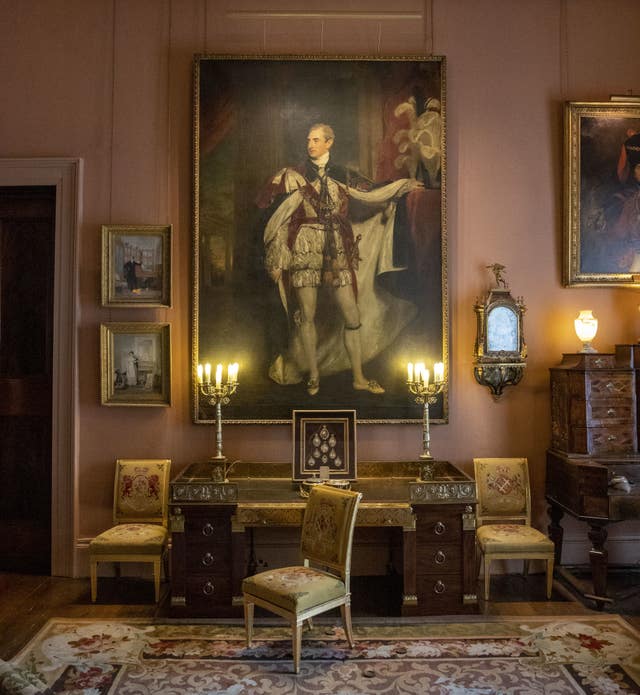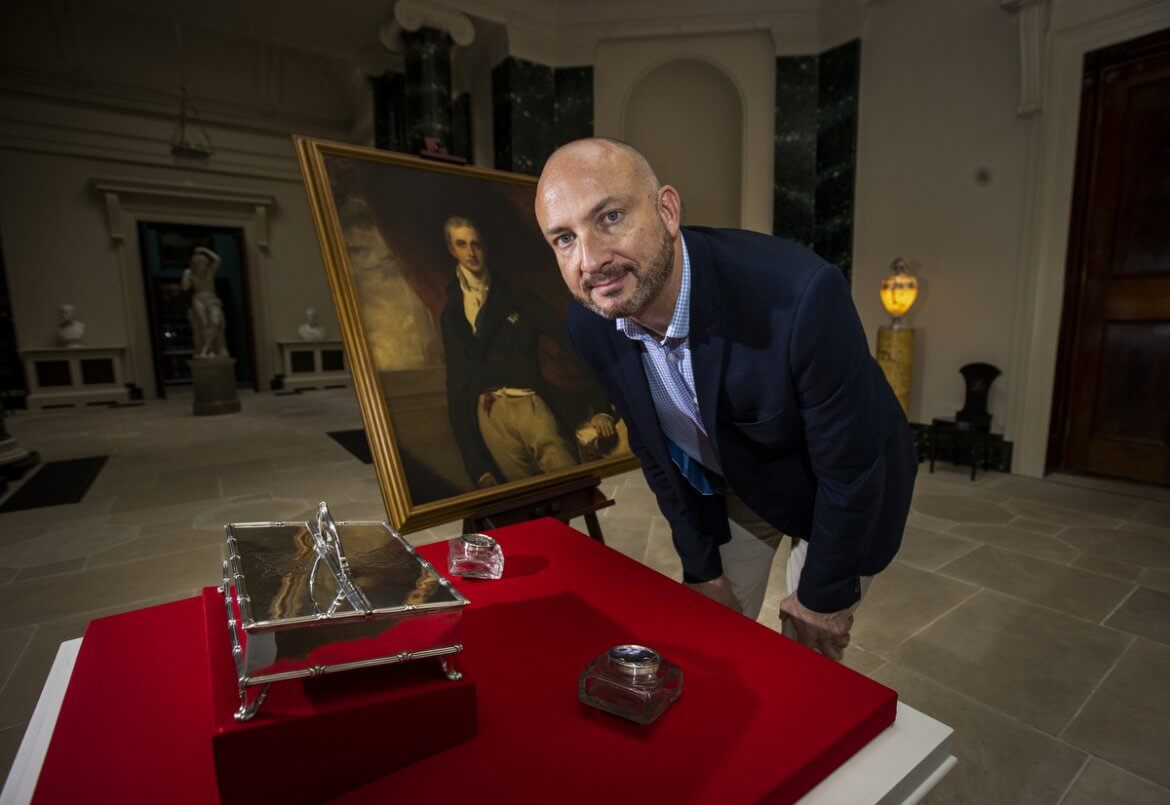An antique inkstand which bore witness to seminal events in Europe two centuries ago is set to go on display in the home of its former owner in Co Down.
Viscount Castlereagh helped shaped Europe through his role at the Congress of Vienna, the coming together of the leaders of the victorious powers in 1814 following the defeat of French ruler Napoleon Bonaparte.
He is also regarded as controversial in Ireland for his role in suppressing the 1798 rebellion, and creating the Act of Union in 1801 which saw Irish interests represented at Westminster.
This year marks the 200th anniversary of his death in 1822 when he took his own life.

The inkstand was presented to Viscount Castlereagh in 1805 by Prime Minister William Pitt when he became Secretary of State for War and the Colonies. He later served as Foreign Secretary,
In that role, he appointed Vice-Admiral Horatio Nelson as well as the Duke of Wellington who led the defeat of Napoleon.
The inkstand remained within the Londonderry family until it was sold in 2019 but now returns to the family’s stately home, Mount Stewart, after it was acquired by the National Trust.
The piece comprises of a silver box and two small bottles, one of which bears traces of the original ink it contained.

Christopher Warleigh-Lack, property curator for Mount Stewart for the National Trust, said they were excited to take possession of the inkstand.
“We obtained it only this year and we’re really excited about it,” he told the PA news agency.
“It came down through descent from the family, sold privately in 2019 and earlier this year we were lucky enough to be able to buy it and bring it back into the family here at Mount Stewart.
“It was the inkstand that was presented to Viscount Castlereagh in 1805 when he became Secretary of State for War and the Colonies, and it was presented to him by the Prime Minister William Pitt.
“At the time anyone who held a Cabinet position was given an inkstand like this, at the back it has the coat of arms of the King, George III, because it was a national position he was in, and then at the front it has the Castlereagh coat of arms which is quite rare, there are very few things that have his own personal coat of arms on them.
“Politically it is really significant because for the rest of his career, Castlereagh used this to write official documents. He wrote letters to the Tsar of Russia, the King of Prussia, to most of the delegates at the Congress of Vienna.
“We also believe the original constitution of Belgium was written, possibly, from this inkstand.”
Viscount Castlereagh was born in Dublin and grew up at Mount Stewart on the outskirts of Newtownards, Co Down.
He became the second Marquis of Londonderry in 1821 when his father died.
Mr Warleigh-Lack said Viscount Castlereagh was disappointed after the Act of Union that created the United Kingdom of Great Britain and Ireland.
He said that both he and Mr Pitt wanted Catholic representation, which had not existed in the old Irish parliament in Dublin, but King George III blocked that part of the act.
A new exhibition on Viscount Castlereagh’s life opened at Mount Stewart on August 12.


